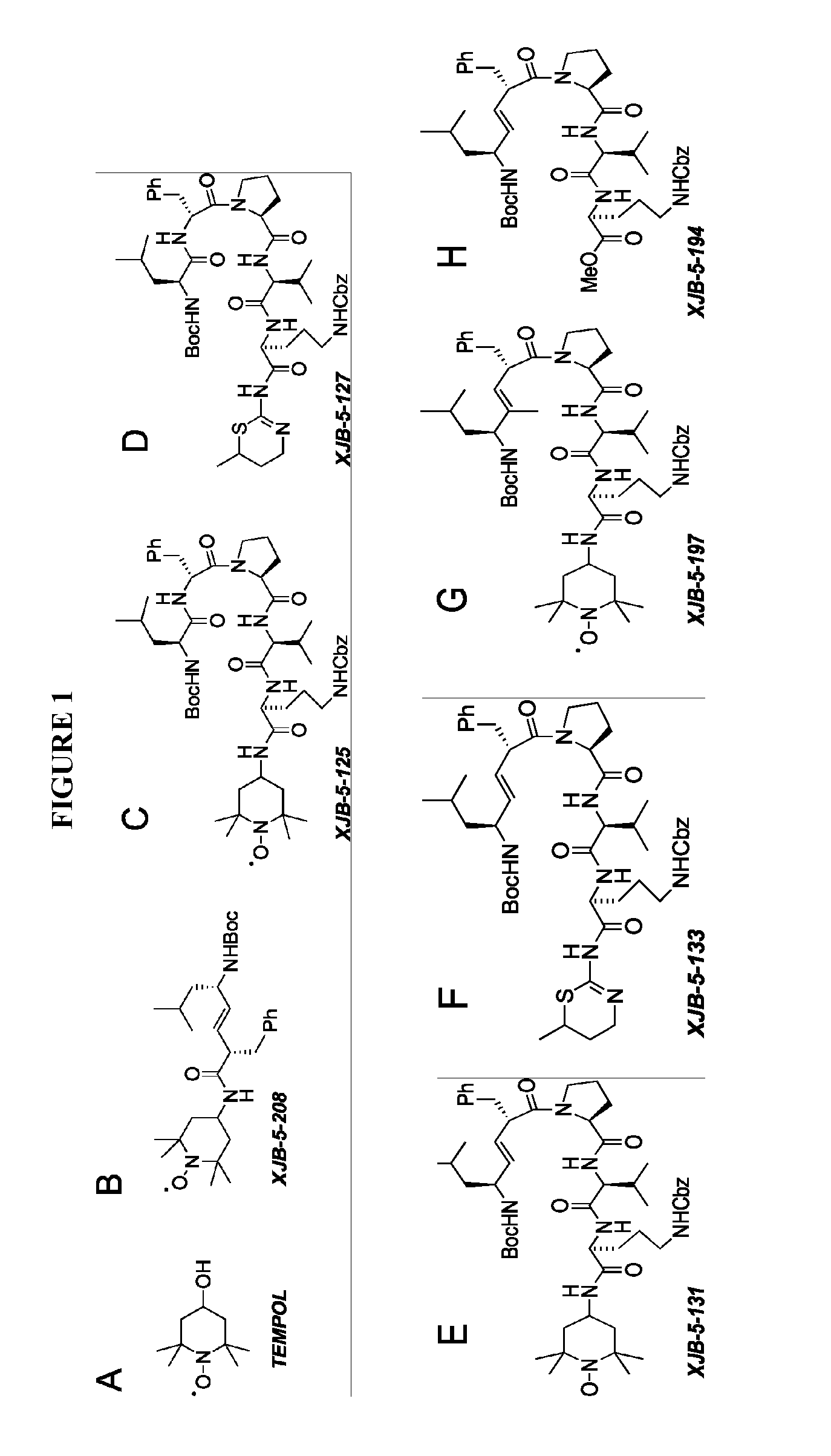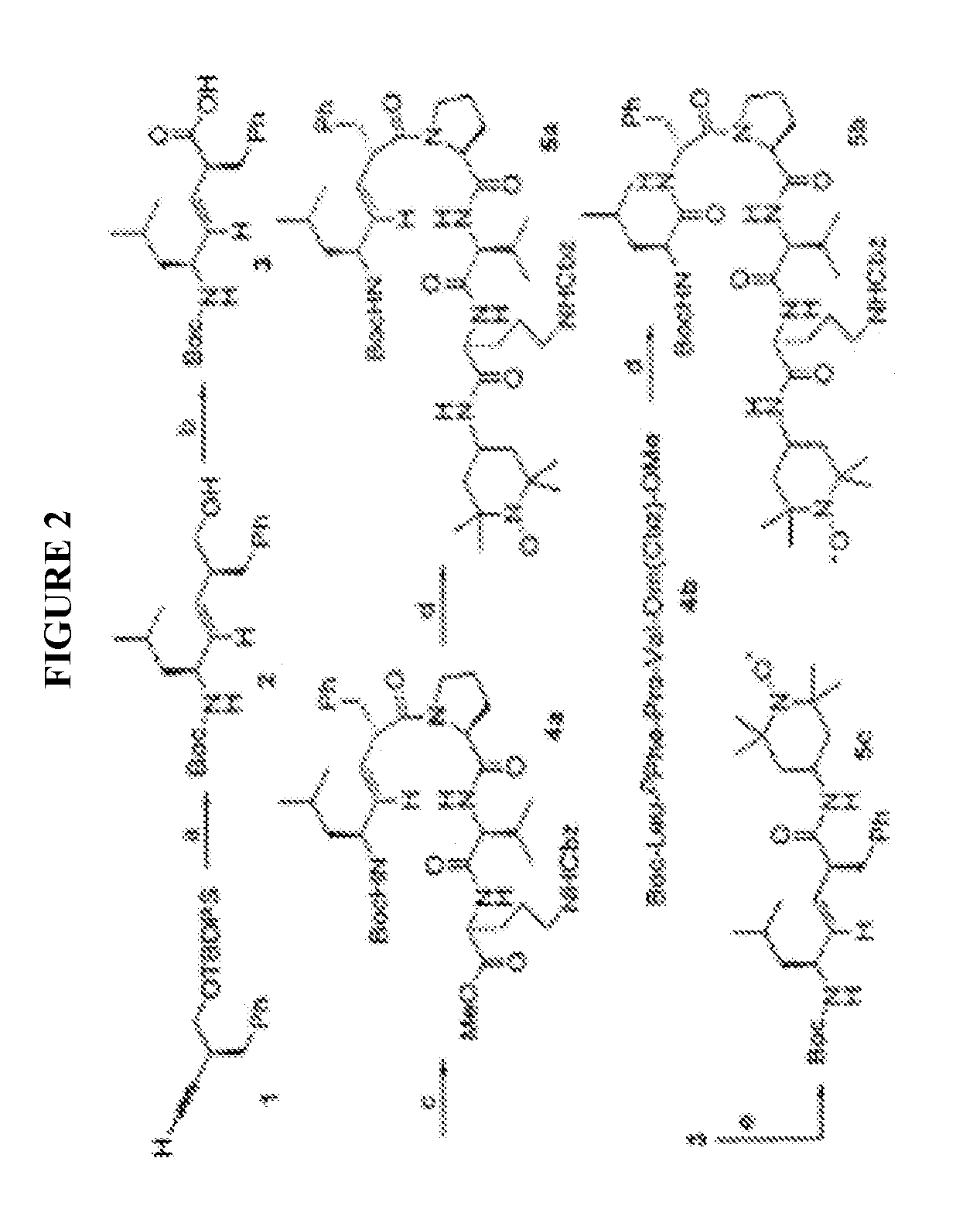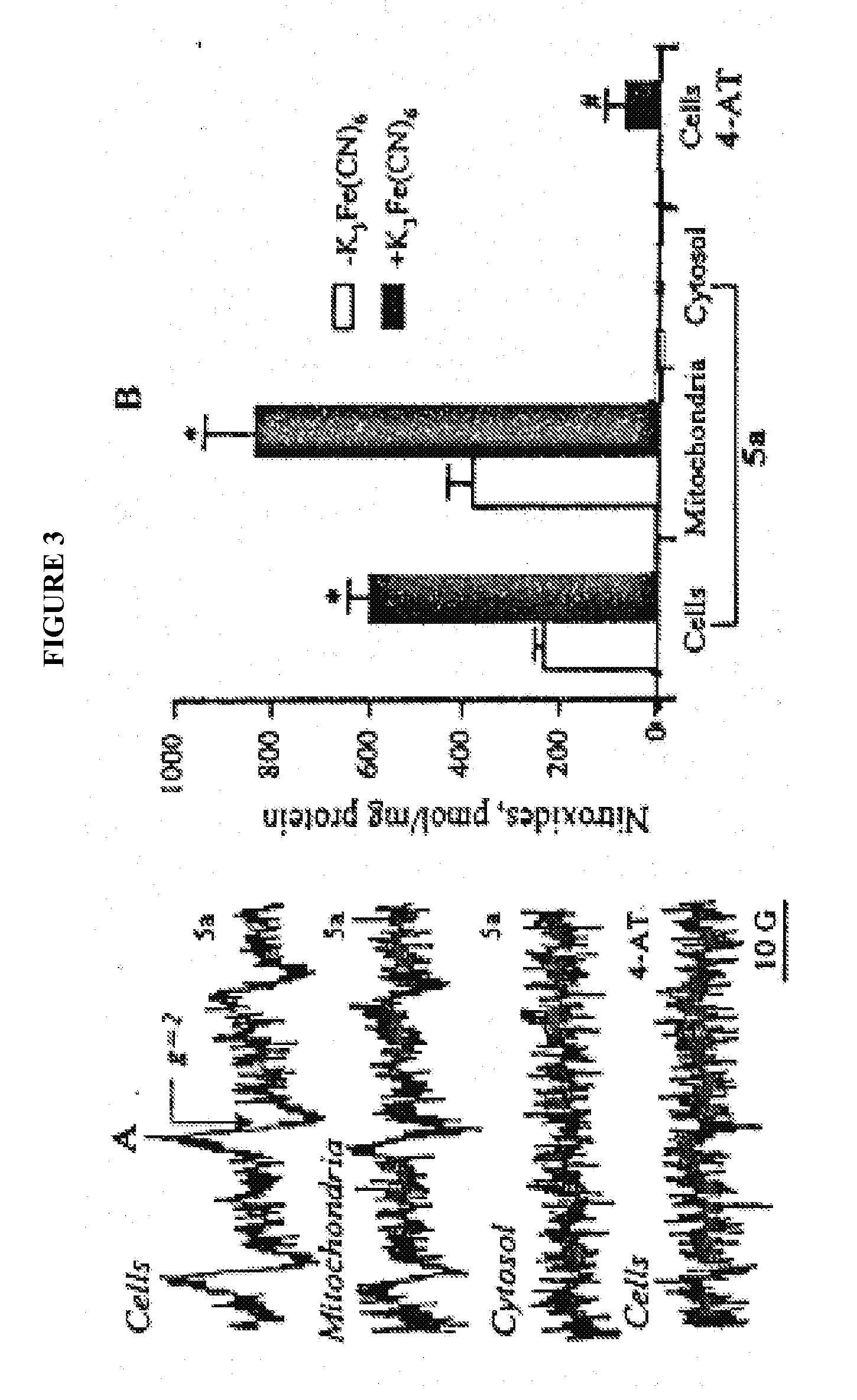Selective targeting agents for mitochondria
a technology of selective targeting and mitochondria, applied in the direction of antinoxious agents, drug compositions, peptide/protein ingredients, etc., can solve the problems of mitochondrial membrane “electron leakage”, cell's natural antioxidants cannot compensate, and produce an excess amount of ros, etc., to and prolong the survival of patients
- Summary
- Abstract
- Description
- Claims
- Application Information
AI Technical Summary
Benefits of technology
Problems solved by technology
Method used
Image
Examples
examples
Materials and Methods
[0079]Materials. All chemicals were from Sigma-Aldrich (St Louis, Mo.) unless otherwise noted. Heparin, ketamine HCl and sodium pentobarbital were from Abbott Laboratories (North Chicago, Ill.). Dulbecco's modified Eagle medium (DMEM) was from BioWhittaker (Walkersville, Md.). Fetal bovine serum (FBS; <0.05 endotoxin units / ml) was from Hyclone (Logan, Utah). Pyrogen-free sterile normal saline solution was from Baxter (Deerfield, Ill.).
[0080]General. All moisture-sensitive reactions were performed using syringe-septum cap techniques under an N2 atmosphere and all glassware was dried in an oven at 150° C. for 2 h prior to use. Reactions carried out at −78° C. employed a CO2-acetone bath. Tetrahydrofuran (THF) was distilled over sodium / benzophenone ketyl; CH2Cl2, toluene and Et3N were distilled from CaH2.Me2Zn was purchased from Aldrich Company.
[0081]Reactions were monitored by thin layer chromatography (TLC) analysis (EM Science pre-coated silica gel 60 F254 plate...
example i
[0120]Selective delivery of TEMPO to mitochondria could lead to therapeutically beneficial reduction of ROS; therefore, investigation of the use of conjugates of 4-amino-TEMPO (4-AT) was explored. In order to selective target the mitochondria, a targeting sequence using the membrane active antibiotic Gramicidin S (GS) as well as corresponding alkene isosteres, shown in FIGS. 1 and 2. Accordingly, using the Gramicidin S peptidyl fragments and alkene isosteres as “anchors,” the TEMPO “payload” could be guided into the mitochondria.
[0121]The Leu-DPhe-Pro-Val-Orn fragment of hemigramicidin was used as a targeting sequence. Alkene isosteres such as (E)-alkene isosteres of Gramicidin S (i.e., hemigramicidin) were used as part of the targeting sequence. See FIG. 3 for the synthetic pathway for (E)-alkene isosteres and compound 3 for the corresponding chemical structure. The (E)-alkene as depicted in compound 2 of FIG. 2 was then oxidized in a multi-step process to yield the compound as dep...
example ii
[0136]In an in vivo assay, the ileum of rats was divided into a series of well-vascularized components in a manner akin to links of sausage. The lumen of each ileal compartment was filled with a 3 μL aliquot of test solution. Two of the ileal compartments were filled with vehicle alone (i.e., a solution containing at least in part the TEMPO derivative). These two components served as internal controls to account for individualistic variations in the severity of shock or the response of the mucosa to the shock.
[0137]Using this assay system, eight compounds were evaluated as shown in FIG. 5: TEMPOL (FIG. 4A), one dipeptidic TEMPO analog (FIG. 4B—XJB-5-208), 3 hemigramicidin-TEMPO conjugates (FIGS. 4C—XJB-5-125, 4E—XJB-5-131, and 4G—XJB-5-197), and 3 hemigramicidin compounds that do not have the TEMPO moiety (FIGS. 4D—XJB-5-127, 4F—XJB-5-133, and 4H—XJB-5-194).
[0138]Hemorrhagic shock in rats leads to marked derangements in intestinal mucosal barrier function—in other words, the mucosal...
PUM
| Property | Measurement | Unit |
|---|---|---|
| thickness | aaaaa | aaaaa |
| thickness | aaaaa | aaaaa |
| temperature | aaaaa | aaaaa |
Abstract
Description
Claims
Application Information
 Login to View More
Login to View More - R&D
- Intellectual Property
- Life Sciences
- Materials
- Tech Scout
- Unparalleled Data Quality
- Higher Quality Content
- 60% Fewer Hallucinations
Browse by: Latest US Patents, China's latest patents, Technical Efficacy Thesaurus, Application Domain, Technology Topic, Popular Technical Reports.
© 2025 PatSnap. All rights reserved.Legal|Privacy policy|Modern Slavery Act Transparency Statement|Sitemap|About US| Contact US: help@patsnap.com



